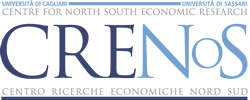Convergence and divergence in Neoclassical Growth models with human capital
| Title | Convergence and divergence in Neoclassical Growth models with human capital |
| Publication Type | Working Paper |
| Year of Publication | 2005 |
| Authors | Di Liberto, A |
| Number | 2005_08 |
| Abstract | Among the determinants of the growth and convergence processes identified by the theoretical literature, human capital is certainly one of the most important. This paper offers a selective survey of the more recent contributions of the theory of human capital and growth. In particular, our aim is to provide the necessary link between the theory on growth, convergence and human capital and the empirics of convergence. Summarising with a play on words, we might conclude that during the last fifteen years there has been a convergence of ideas between endogenous and exogenous models with respect to the convergence hypothesis where human capital plays an important role. Despite the still theoretically important difference between models that assume exogenous versus models that assume endogenous long-run growth rates, both theories predict that a mechanism of convergence is possible, but it will only be so among similar economies. In particular, most theoretical literature assumes that similar levels of human capital are fundamental for catch up to take place. Therefore, both theories are currently able to explain a stylised fact of the empirical literature on growth, namely the observed convergence among groups of homogeneous countries and the absence of convergence when large and heterogeneous data sets are introduced. This observation explains why, with current econometric techniques, it is not possible to discriminate endogenous versus exogenous models by simply using a convergence regression. |
| Citation Key | 227 |
| Attachment | Size |
|---|---|
| 361 KB |
